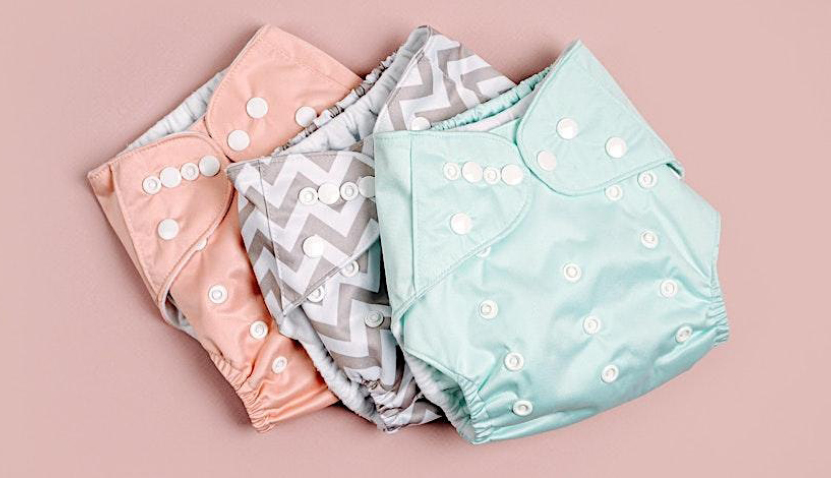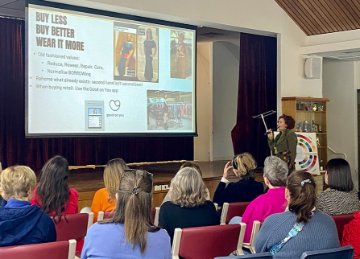
Modern Cloth Nappy pop-in Q&A Session
- Various dates and locations, see event description for details.
- Multiple locations
The City runs a range of waste initiatives and programs for residents and schools to get involved in.
To help residents make the switch to cloth nappies, the City of Stirling, is offering a one-off rebate:
The City is offering a rebate of 50% off the cost of your reusable sanitary product purchase, up to a total rebate value of $50.00. Everyday millions of single-use sanitary products, wrappers and packaging contribute to environmental pollution as they end up in landfills. These items take years to decompose, releasing harmful substances during the process.
To combat this, the City of Stirling is offering a rebate for reusable alternatives. In addition to their positive environmental impact, reusable sanitary products are easy to use and cost-effective. Making the switch can save individuals hundreds of dollars annually compared to continually purchasing single-use products. Reusable sanitary products are now widely available to purchase via online stores, chemists, major supermarkets, and shops.
Whether you’re a menstruating person or are living with light bladder leakage or incontinence, there are many sustainable options to choose from that come in a variety of shapes and sizes:
For more information, please contact the Customer Service Team on (08) 9205 8555 or via email waste.engagement@stirling.wa.gov.au.
WasteSorted Schools, a program of the Waste Authority, provides support to schools across Western Australia to promote better waste management practices and behaviours, with a focus on waste avoidance and resource recovery. It also develops positive environmental values in students and the whole school community.
The program offers resources such as professional learning, curriculum materials and in-school support to plan, implement and maintain waste avoidance and resource recovery projects such as recycling, composting and worm farming.
Besides reducing waste sent to landfill and helping to protect our environment, schools that successfully implement WasteSorted Schools strategies notice the following benefits:
For more information, please contact the WasteSorted Schools team:
Ph: (08) 6364 6696
Email: wastesortedschools@dwer.wa.gov.au
www.wastesortedschools.wa.gov.au
Enquire about a waste incursion for your school with the City's waste engagement team on waste.engagement@stirling.wa.gov.au
Other useful links:
The City is engaging with residents to inform them on how to best use the three bin system to reduce waste going to landfill. Part of the process is to work with communities and interest groups within the City.
The City provides:
The program is free and conducted by experienced presenters/educators.
For more information, please contact the Waste Education Team on (08) 9205 8555 or via email waste.services@stirling.wa.gov.au.
‘WasteSorted – Talking My Language’ is a multilingual educational toolkit developed to overcome the difficulties experienced by culturally and linguistically diverse (CaLD) demographics in understanding waste services information due to language and literacy barriers.
Suitable for both adults and children, the toolkit is designed for use with small groups to help them better understand how to sort waste correctly. Contained within a handy carry bag, the toolkit includes waste sorting cards, three mini bins, a ‘Sorting Your Waste’ flyer, and an activity sheet. Through a series of games, puzzles, and quizzes, participants are challenged to correctly identify common household items and their English translation, before sorting them into one of three mini bins that mirror those at home.
The toolkit is available in ten different languages, including Amharic, Arabic, Burmese, French, Hindi, Indonesian, Macedonian, Simplified Chinese/ Mandarin, Tagalog, and Vietnamese. A non-translated version is also available for verbal translation into other languages. It was created by the City of Wanneroo and funded by the State Government through the Waste Avoidance and Resource Recovery Account and administered by the Waste Authority. For more information, please visit the Waste Sorted – Talking My Language page.
You can loan it out via our library services. To see if this item is available, please visit our online catalogue.
Be a GREAT sort - find out the tricks for being a GREAT Sort – and reduce what you put in your landfill bin
Treading my Own Path - Lindsay Miles is Perth’s resident and writes a plastic-free, zero waste and minimalism blog which she started after taking part in Plastic Free July in 2012. Topics comprise of plastic-free, zero waste, recipes, minimalism and simple living.

In 2024 the City hosted two Sustainable Style Workshop and Clothes Swap events in Scarborough and Inglewood.
Over 170 attendees brought quality clothes, shoes and accessories to swap at the events.
Items donated were weighed in on entry and items taken home by attendees were weighed out to show our diversion from landfill. Any clothes not taken on the day are kept to be used at the next clothes swap or for future upcycling workshops.